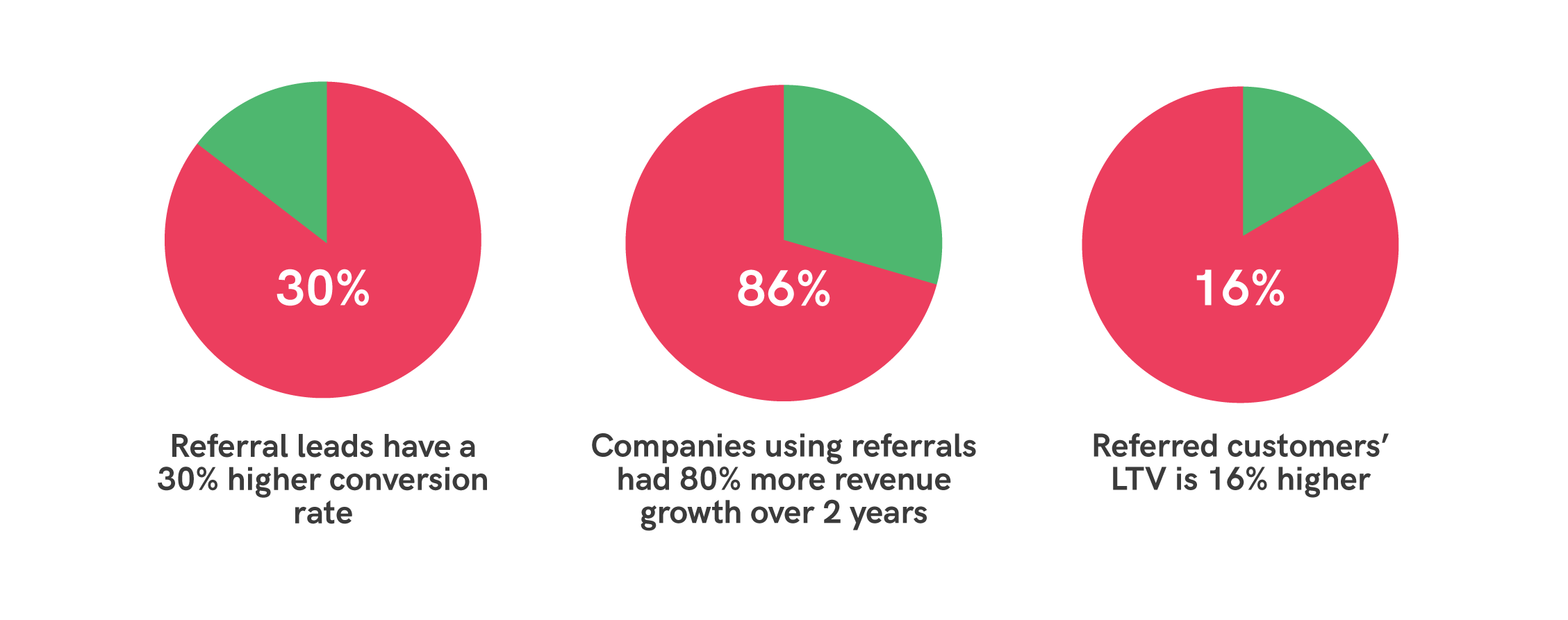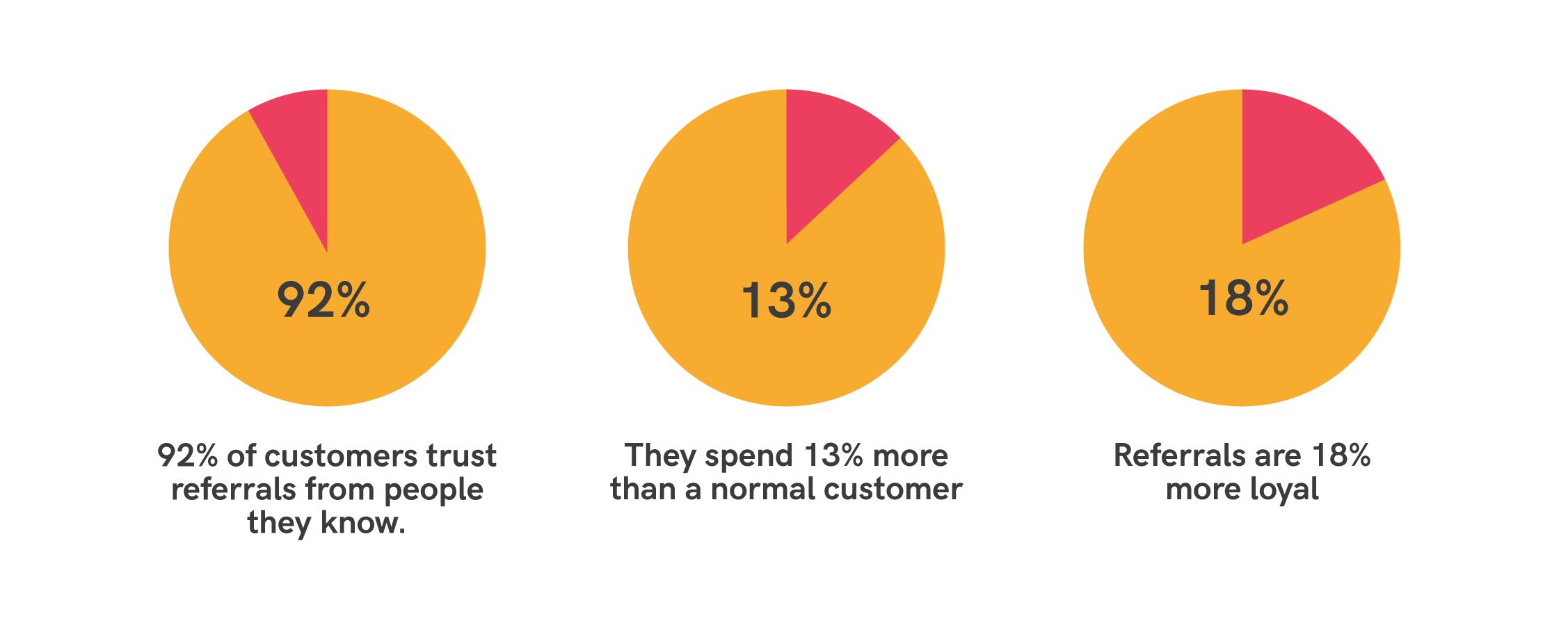CATEGORY > Customer Advocacy
3 Pillars To Build An Impactful Referral Program

A referral program is a marketing strategy that encourages customers to refer new customers to a business in exchange for incentives. It leverages the power of word-of-mouth marketing to acquire customers, improve customer advocacy and drive organic and sustainable growth.
Referral programs are a powerful marketing tactic that can boost sales and attract new business. Constructing an effective referral program may pose challenges, but the rewards make it worthwhile. The key lies in incentivizing desired behaviors that drive positive outcomes.
In this article, we'll discuss all that it takes to build an impactful and thriving referral program.
What impact do referral programs have on your business?
Referral marketing has emerged as the fastest-growing marketing channel, that offers a rapid means to convert visitors into buyers. It has various advantages including heightened customer loyalty, greater brand awareness, improved customer retention, and enhanced value of products.
To illustrate the significance of referral programs in today's volatile market, let's examine some crucial statistics.


Unlocking Success with the Three Pillars of Referral Programs
To establish a thriving referral program for a B2B brand, it is very important that customers are provided with an exceptional experience and a superior product. It is important to notice that B2B and B2C referral campaigns differ significantly,
where B2B campaigns focus on smaller target groups, buying cycles, the need for awareness, and a product that solves a particular problem.
To achieve success, consider these three fundamental pillars:
1. Strong Customer Base
Establishing a strong customer base requires sheer dedication and time. It is crucial to prioritize and foster customer relationships from the beginning, as this is a key factor in fostering loyalty in the B2B domain.
To achieve this, you must partner with your customers throughout their journey with you and maintain a good and healthy communication channel. It is imperative that your customers view you as their trusted friend and advisor. This is where your customer success strategy comes into play.
2. Identification of a loyal Customer
- Evaluate your customer retention rate
- Observe online customer reviews, give particular attention to positive feedback
- Are there customers who are already promoting your product? Identify them.
- Conduct a net promoter score (NPS) survey to asses who are the customers that are most likely to recommend your product
- Once you have identified loyal customers, segment them based on industry, region, user type, etc.
3. Conception of a Referral Program
To establish a successful referral program, simply having a customer base and a list of contacts is not enough. A well-thought-out plan is essential for it to function like a well-oiled machine. Consider the following ten factors:
- Design a user-friendly website with clear messaging about the referral program, a straightforward form, and a compelling call-to-action (CTA)
- Use links or referral codes to track the referral process accurately
- Include a FAQ section with essential information
- Personalize the referral experience by crafting a persuasive message with the help of your customers
- Continuously evaluate and qualify the referrals to ensure the program's success
- Develop an attractive incentive that motivates your customers to refer others
- Clearly define the guidelines for rewarding the referrer and the referee
- Promote your B2B referral program effectively to maximize its impact
- Utilize referral tools to automate your program once you have a firm grasp of it
- Monitor the campaign's impact on your business regularly to make necessary adjustments and improvements
With these considerations in mind, you'll be ready to launch a successful referral program and make a mark in your industry.
Final Thoughts
Before I wrap up, I want to emphasize that a successful referral program requires a collaborative effort from Customer Success, Marketing, and Sales teams. While some may disagree, I firmly believe that allowing your Customer Success team to take ownership of the referral program, with support from Marketing and Sales, is the best approach.
Why is this important?
Because customers are the foundation of any effective referral program, your Customer Success team is best positioned to manage the after-sales customer journey and foster strong relationships with loyal customers. Establishing trust with the CS team is crucial for the referral program's success.
ABOUT THE AUTHOR
Popular from Customer Advocacy
Quality Content,
Straight To Your Inbox!
Subscribe for the latest blogs, podcasts, webinars, and events!

Write a Blog
If you have experience in CS and
a flair for writing, we’d love to
feature you.
Write to us on
hello@zapscale.com



